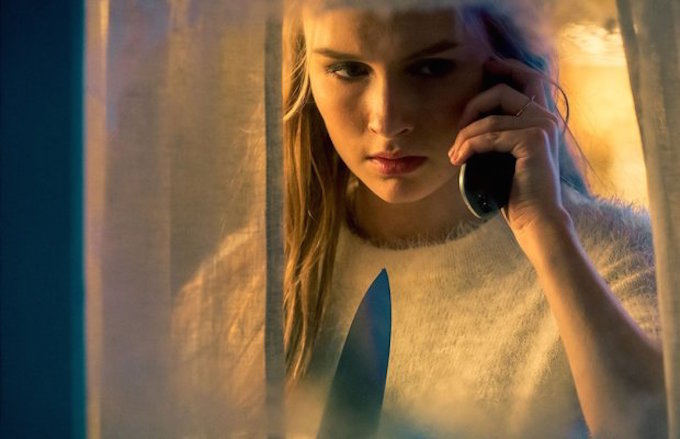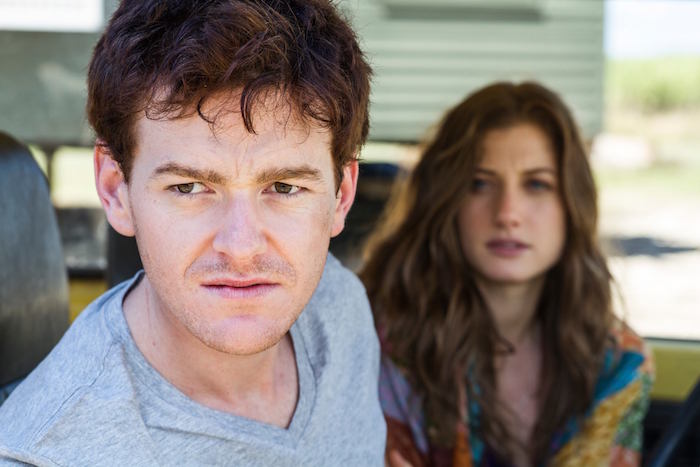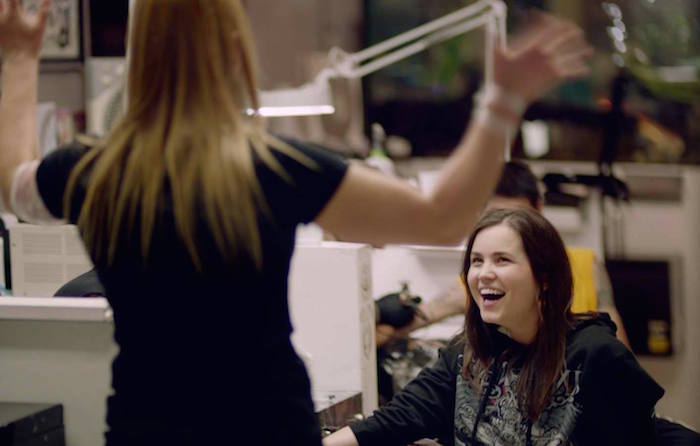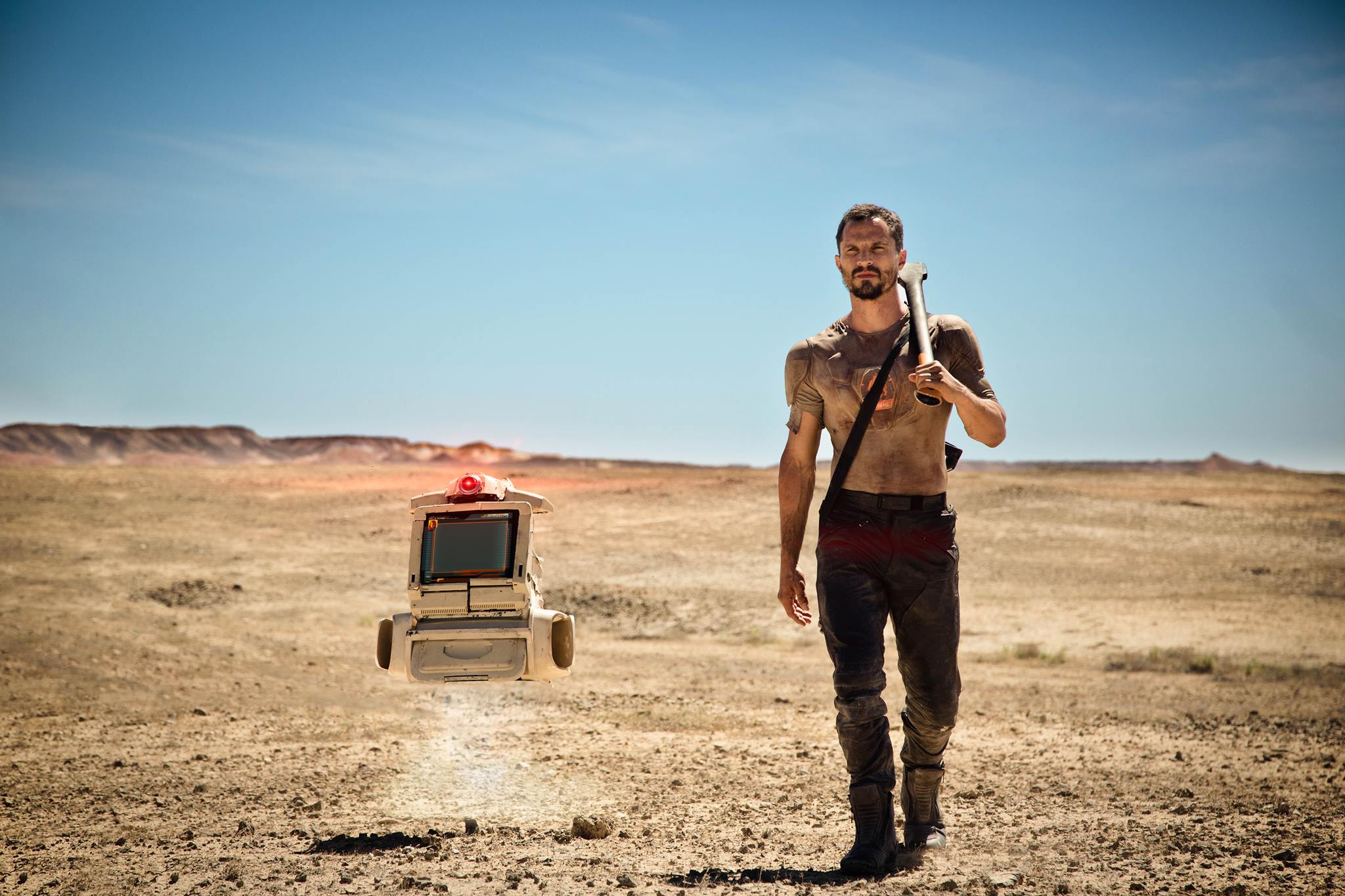SAFE NEIGHBORHOOD
 Wednesday, November 30, 2016 at 12:47AM
Wednesday, November 30, 2016 at 12:47AM Stars: Levi Miller, Ed Oxenbould, Olivia DeJonge, Dacre Montgomery, Aleks Mikic, Virginia Madsen and Patrick Warburton.
Writers: Zack Khan and Chris Peckover.
Director: Chris Peckover.
Reviewed at the Australian Premiere at Monster Fest 2016, Sunday November 27 at Lido Cinema 4, Hawthorn.
Rating: 4/5

In an alternate mid-80’s universe, director Joe Dante’s follow-up to his grim Yuletide fairy tale Gremlins would have been Safe Neighborhood, a crisp, crackling, black and bloody Christmas comedy/horror that came to fruition after Dante glimpsed an early draft of Michael Haneke’s Funny Games script. Seasonal cinemagoers would have surely warmed to its crowd-pleasing, nerve-twisting verve, setting it on a path to festive season VHS-viewing immortality.
Of course, this would have denied 2016 audiences the giddy thrill of watching a young directing talent emerge in Chris Peckover, who exhibits slick technical skill and an ease of touch with the chills and giggles in his script, co-written with Zack Khan. Peckover’s well-received 2010 debut Undocumented gave no indication that his sophomore effort would define him as such a confident storyteller, well-schooled in character, atmosphere and mise-en-scène. No less crucial to the grasp his film maintains on its audience is the chemistry and energy of his three leads, a triumvirate of tweenage talent destined for prolonged and deserving bigscreen careers.
Taking his cue from Dante’s frost-tinted, green-&-red hued view of Spielbergian suburbia, Peckover and his masterful DOP Carl Robertson paint a picturesque façade of blissful well-to-do family life that begins to crack almost immediately; a snowman is beheaded, while the joyful playing of young siblings descends into a brutal snowball fight. Every-girl teen archetype Ashley (Olivia DeJonge), texting while driving through the crowded residential avenues on her way to a babysitting gig, barely brakes in time to avoid a black cat that runs across her path.
Inside an expertly production-designed middle class home that effortlessly evokes the McCallister abode in Home Alone (the influence of Chris Columbus’ cinematic kindred spirit running through the film's DNA), acerbic mum Deandra (Virginia Madsen) and goofy dad Robert (Patrick Warburton) are preparing for their night out. Son Luke (Levi Miller) and his bestie Garrett (Ed Oxenbould), embodying the roles that the Corey’s would have played 30 years ago, are bantering about how Luke can fulfil his pubescent urges and impress upon Ashley his intentions.
Miller is a revelation; the Australian teenager fronted the notorious 2015 misfire, Pan, but has grown in stature and on-screen presence (he also anchors the blockbuster-to-be, Red Dog True Blue, debuting Boxing Day Down Under). As Luke, the transformation that Miller undergoes represents an arc that actors four-times his age would struggle to capture (keeping any coverage spoiler-free is tough but an absolute must). He is, in key moments, mesmerising to watch. Cast mates and fellow Aussies De Jonge and Oxenbould (reteaming on-screen having played siblings in M Night Shyamalan’s The Visit) are equally committed and impressive.
The first act set-up is meta-horror 101, delivered with knowing humour and great pacing. To delve too deeply into the Scream-like Act 2 spin that Peckover employs would do a disservice to the dexterity with which he both manipulates the narrative and amps up the tension. Suffice to say, by the time the Bueller-esque final moments unfold, the next-big-thing directing talent has not only referenced and honoured that subversive period of 80’s mainstream cinema during which Reagan’s America was slyly being diced and sliced; he has also conjured a wonderfully witty, bracingly shocking and completely contemporary home-invasion/slasher-pic reinvention.
 Australian film,
Australian film,  christmas,
christmas,  horror,
horror,  levi miller,
levi miller,  slasher
slasher 











